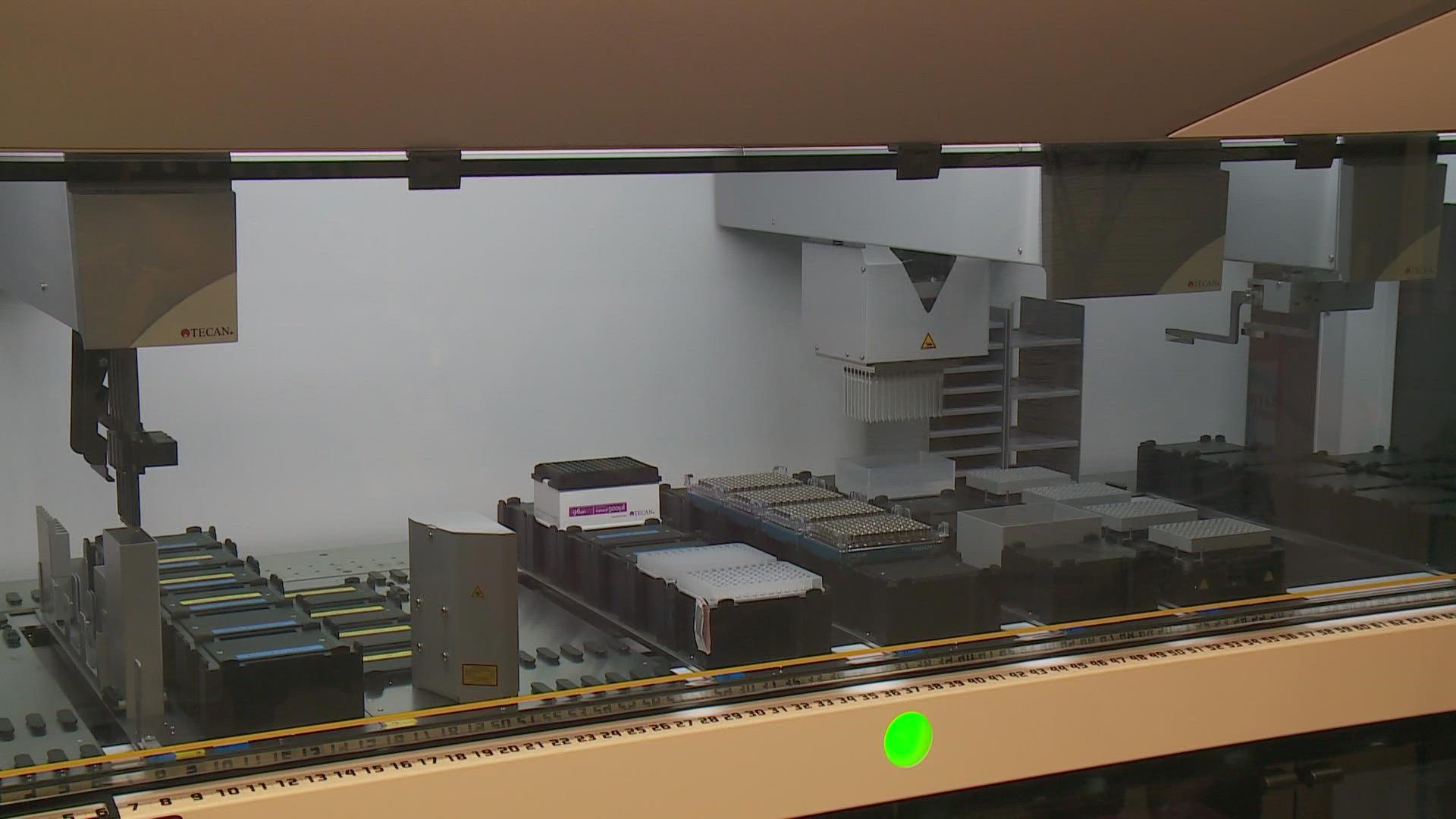BATON ROUGE, La. — Researchers are working to learn more about two new COVID-19 variants that were just discovered in an LSU Health New Orleans lab.
"This virus (COVID-19) is mutating extremely fast so we need to keep track of it because if it becomes different enough the vaccine is going to have to be adapted," said Lucio Miele, MD. PhD, co-Director of the Precision Medicine Lab and Professor and Head of Genetics at LSU Health New Orleans School of Medicine.
These new variants are subvariants of Omicron which has been driving the latest COVID-19 surge. The team of LSU Health researchers will have to monitor more COVID-19 samples to figure out where they came from and how they are spreading.
Dr. Miele breaks apart the genetic makeup of anywhere from 50 to 100 Louisiana COVID-19 tests a week in the Precision Medicine Lab. It reveals the DNA of each sample.
"We can find out how different it is from the other viruses we have been sequencing before and whether it's a new member of the family," he explained.
Last week, four samples revealed two new COVID-19 variants that have never been detected before.
"We looked into the global database of subvariants and we were unable to find them," Dr. Miele said.
Subvariants of Omicron, the new variants are called BE.1 and BF.1. Dr. Miele and his team identified three cases of BE.1 and one case of BF.1 at the end of June.
"The appearance of these new ones, a total of four cases, was a surprise. Now we're going to have to track them," Dr. Miele said.
Because they are so new, Dr. Miele doesn't know what's different about these variants, how contagious they are, or how sick they could make you. That's why he will keep monitoring them to see if cases increase.
"We don't know yet what this means. It will depend on whether they start spreading," he said.
It's unknown how they originated. Dr. Miele said they either came from outside Louisiana, mutated into a new variant inside a COVID-positive patient, or came from an animal.
"The virus that causes COVID-19 doesn't just infect humans. It can infect rodents like mice and rats, it infects cats, mink," Dr. Miele said.
His biggest message is to take this discovery as a sign that COVID-19 is still present in our community.
"It's not over, it's not going to be over so for now the best thing people can do is if they are not vaccinated they should be vaccinated," Dr. Miele said.
He said he is not receiving as many samples as he would like since COVID testing is down. He needs PCR tests, which he receives from Ochsner and the Louisiana Health Department.
"If enough people continue testing we're going to keep track of these," Dr. Miele said. "If anyone has symptoms that may be COVID-19, yes, do a self test and self isolate, but if you can, do get a PCR test because that is what allows us to keep track of what variant is spreading."

